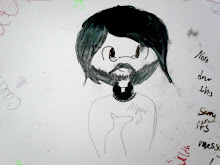¡Feliz navidad desde Uruguay! I am a few days late in writing this, but it´s been crazy around here since last Friday: we´ve had all kinds of guests (from two continents), church asados, stomach illness (not connected to the formerly mentioned ítems), and (imagine this) work. This week, accordingly, you´re getting a Tango Thursday, rather than a Mate Monday, update. Also, this will be part two of my Christmas meditations inspired by the one, the only, Franklin Ishida. This week, I´m tackling the question of the meaning of Christmas in the context of my life and mission here in Uruguay.
I´ve been reading, when I have the patience and energy, Jürgen Moltmann´s The Crucified God. As the title suggests, it is a work devoted to the “theology of the cross,” that often-mentioned, but sometimes misunderstood, branch of Christian theology rooted, to at least a large extent, in the writings of Martin Luther (he originated the phrase). So what is this theology of the cross, then, and what does it have to do with Christmas in Uruguay? Cruciform theology, theology that puts the crucified Christ and, by de facto, the crucified God, at its center demands that we think about that cross and why God found it so important to forever link it, and the shame and suffering it implies, with God´s own identity in our world. It is the recognition that God´s presence is not principally up in heaven, sitting on a fancy gold throne; it is here with us, all of us, and especially in the midst of suffering. God chose to suffer so that we can enter into relationship with God, to bring us into the Kingdom of God. This is meant in more than just the idea of personal salvation; it´s so much deeper than that. It is the call to take up that cross, not to flee from the suffering of the world, but instead to take seriously the burden of stewardship of a world filled with pain, anguish, and misery.
So, what does that have to do with Christmas? Well, that journey to the cross had to start somewhere, and that somewhere was on a night over 2000 years ago in a town that nobody cared about called Bethlehem…Belén to the Spanish-speakers in the audience. Bethlehem was, to talk like a Montevideano, kinda like El Cerro – it was more-or-less just a district of Jerusalem, but one with a very separate identity, a corner of the region with nothing to recommend itself to the rest of the world. In fact, maybe that makes someplace like Uruguay a Bethlehem in the world – you know, that place you memorized the location of once for a geography test, and then forgot about it. You´ll probably never intentionally plan a trip to go there, and even if you do, you´ll probably only hop over to Colonia for a day, or just go straight to the beach in Punta del Este, or stay for a few days to catch both, plus a day or two in Montevideo. It´s not glamorous, it´s not fancy, it´s not the place that conjures up all sorts of exciting images in your mind. It´s just Uruguay, that little buffer state between Argentina and Brazil.
It´s the people, too. Bethlehem, being the forgotten corner of Judea, was not marked by prosperity, or even much hope of prosperity. Its people just tried to get by – keep food on the table, clothes on their backs, a roof over their head. They were a lot like most of the Uruguayans I know – not necessarily poor, but just getting by. The Uruguayan economy is stable, but it´s not strong or likely to become one of those “tiger” economies that pop out of the woodwork every decade or so and surprise everyone until something bad happens – it was Southeast Asia in the ´90s, Ireland right now, but it just won´t ever be Uruguay. There aren´t the natural resources, business infrastucture, the population, or the international interest; Uruguay will likely stay the same, a comfortable, but not First World, sort of place. As for attitudes, they run the gamut from the few wealthy plutocrats, enjoying the easy life in Pocitos and Punta del Este, to fiery-eyed leftists leaving fervent Marxist graffitti on every wall in the city, to the 90% in between, most of whom seem tired, weary, and resigned to the gray skies of living on the razor-edge between comfortable stability and the threat of economic collapse. There´s always the imperialism card to play, too – Israel was under the heel of the Romans; take your pick as to who or what is most worthy of the title of “global imperialists” right now, but chances are high that they´ve got Uruguay where they want it.
And yet into this, into the ignored, depressed, incontent corners of the world, Christ is born. When it´s dark and things aren´t easy or fun, Christ is born. Where there too often isn´t hope, isn´t faith (Uruguay is up there with Europe for letting cold, atheistic rationalism hold the day), and maybe even isn´t love, Christ is born. Where people feast in their beachside high-rises while people on the other side of the city are going hungry, where the rich neighborhoods and poor neighborhoods don´t even feel like the same planet, Christ is born. Wherever people suffer, are prisoners to sin, oppression, and darkness, Christ is born. Christmas didn´t just happen once; the crucified Christ, resurrected and alive, still comes to us in our fears, in our secret longings for abetter way, and brings us, in the words of Marty Haugin´s “Healer of Our Every Ill,” peace beyond our fears and hope beyond our sorrows.
Thursday, December 20, 2007
Subscribe to:
Post Comments (Atom)

No comments:
Post a Comment